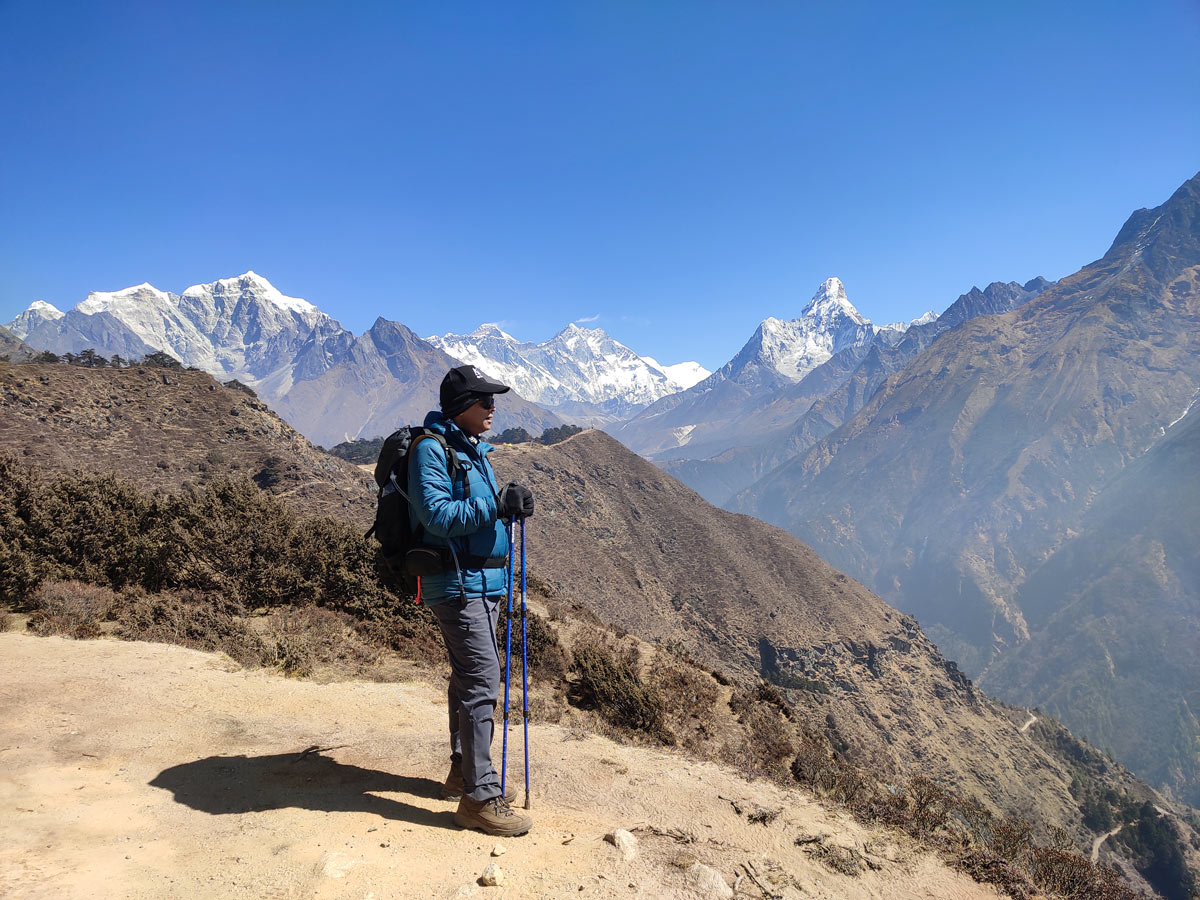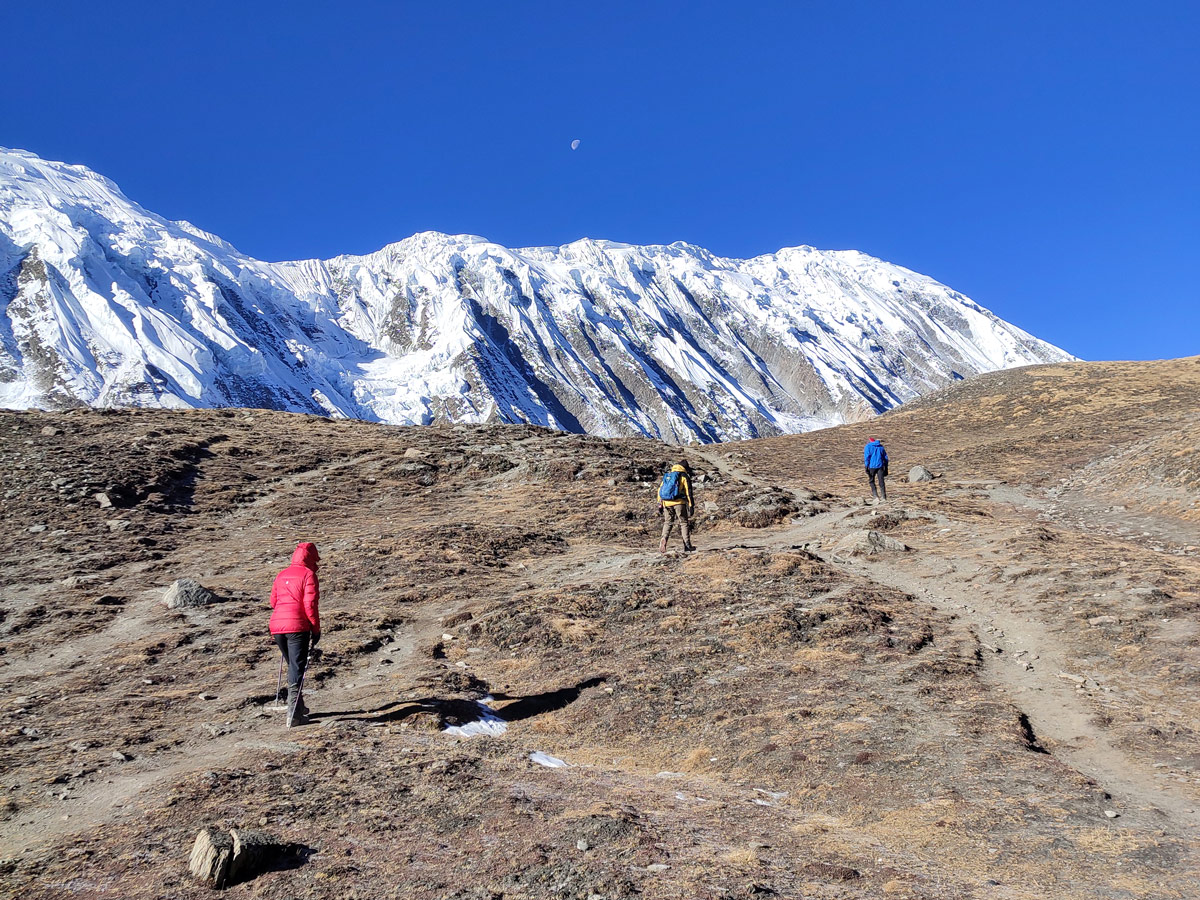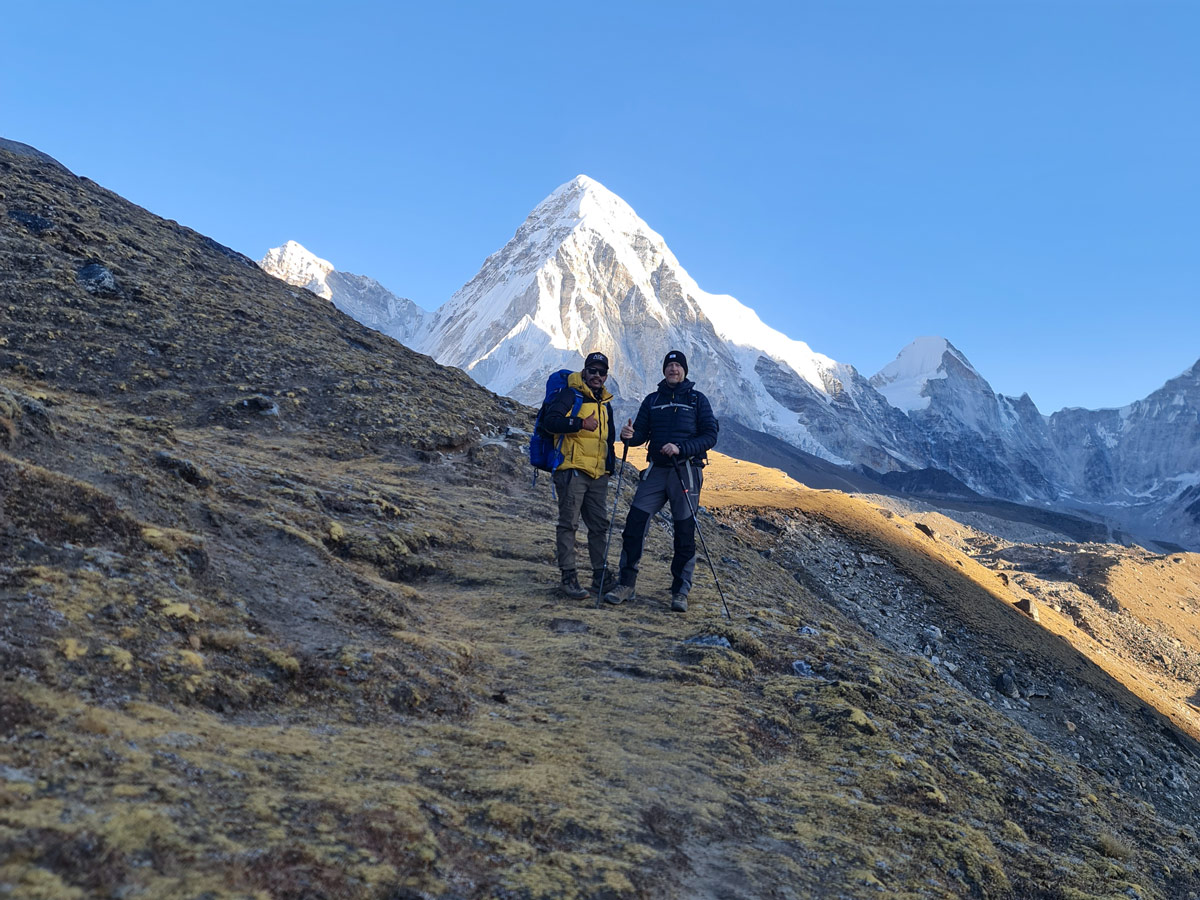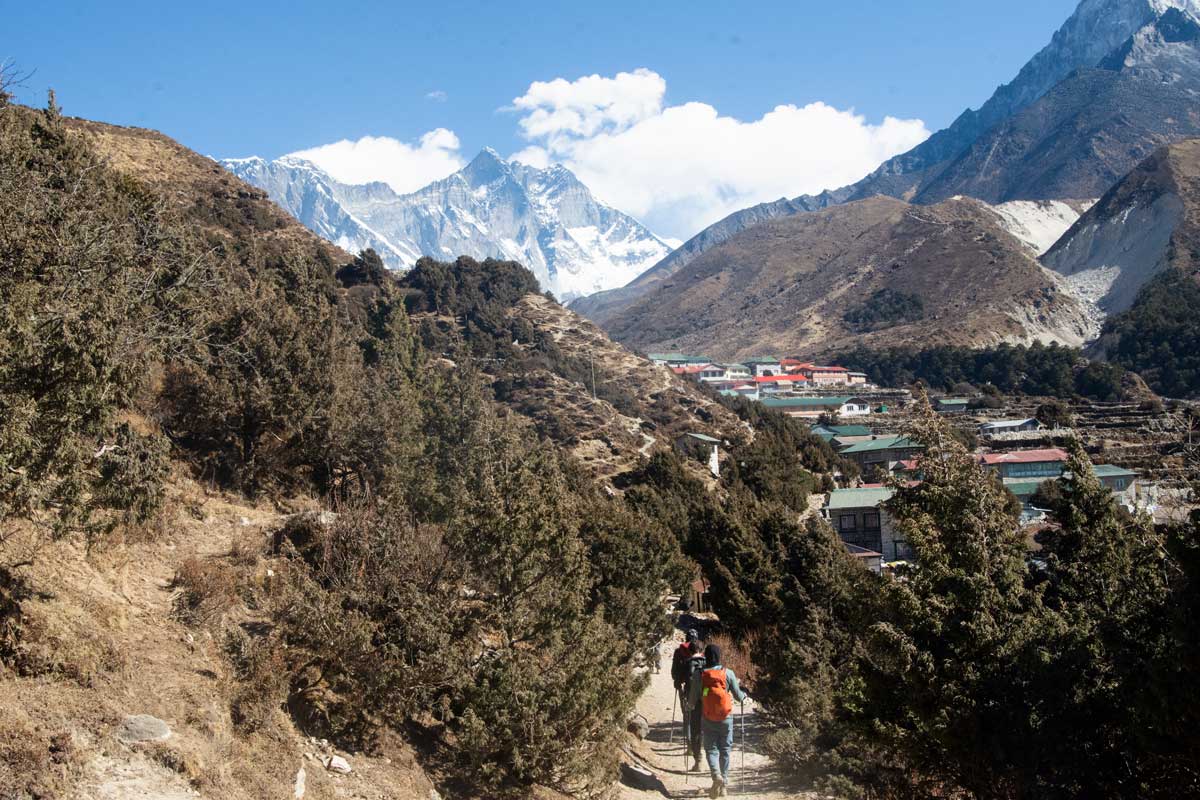The sight of the tip of Everest piercing right into the sky while being surrounded by almost heaven-like landscapes that many people dream of witnessing.
With the promise of providing the same, the Everest Base Camp trek beckons adventure enthusiasts from all over the world. However, the trek is not a walk in the park and the same is known by intrepid trekkers.
Therefore, queries surrounding the Everest Base Camp trek fitness requirements are quite common as before embarking on the trek people want to know if they have enough physical fitness to successfully complete it.
Thus, in this blog we discuss the fitness requirements for EBC ensuring that your adventure to the mountain mecca doesn’t turn out to be a nightmare.
Understanding the EBC Trek
The Everest Base Camp trek is a promising adventure that takes the trekkers on a challenging journey of around 130 km (about 80 miles) across diverse terrains ranging from lush forests to rocky paths.
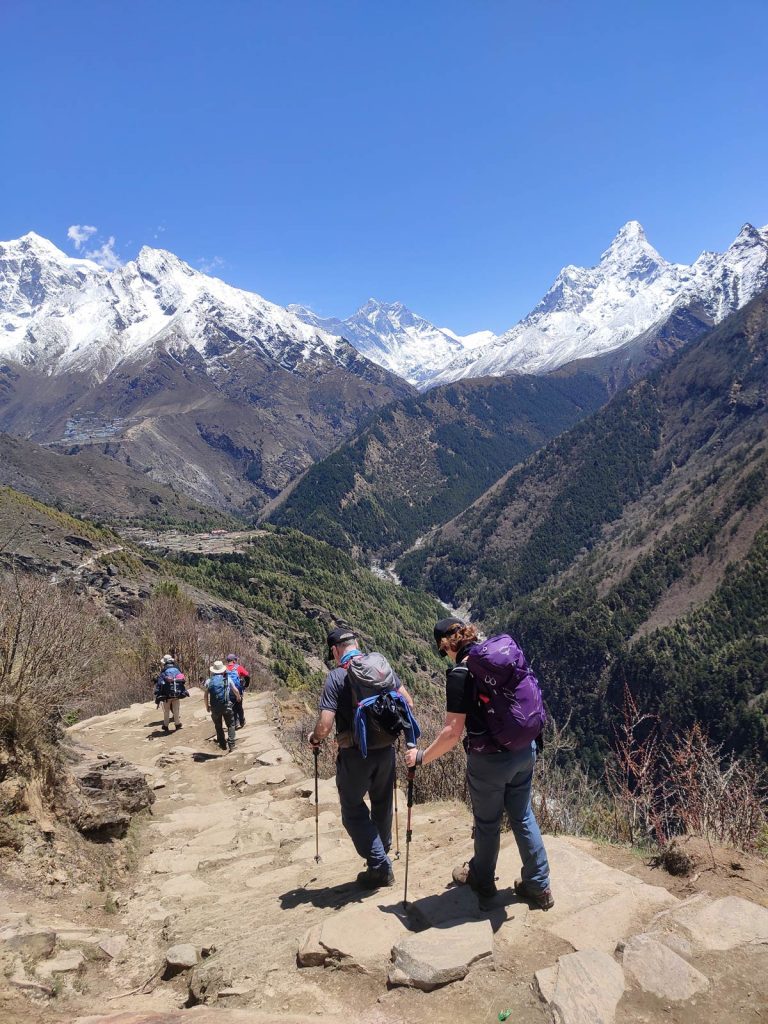
Spanning across around 12 days on average, the trek requires the trekkers to walk for approximately 6-8 hours every day as it reaches the highest accessible point at Kala Patthar at 5,555 m.
Amidst the thrill of all these adventures, one most asked question is: How physically fit should one be for the Everest Base Camp trek?
The Answer
Am I fit enough for the Everest Base Camp trek? What are the Everest Base Camp trek fitness requirements? How do I prepare myself for the EBC trek? If you are troubled by these questions, we have the answers for you.
Despite the commonly prevailing notion, you don’t have to be as fit as some ultra-athletic guy taking part in the Olympics to trek the Everest Base Camp. Being reasonably fit should suffice for your dream adventure.
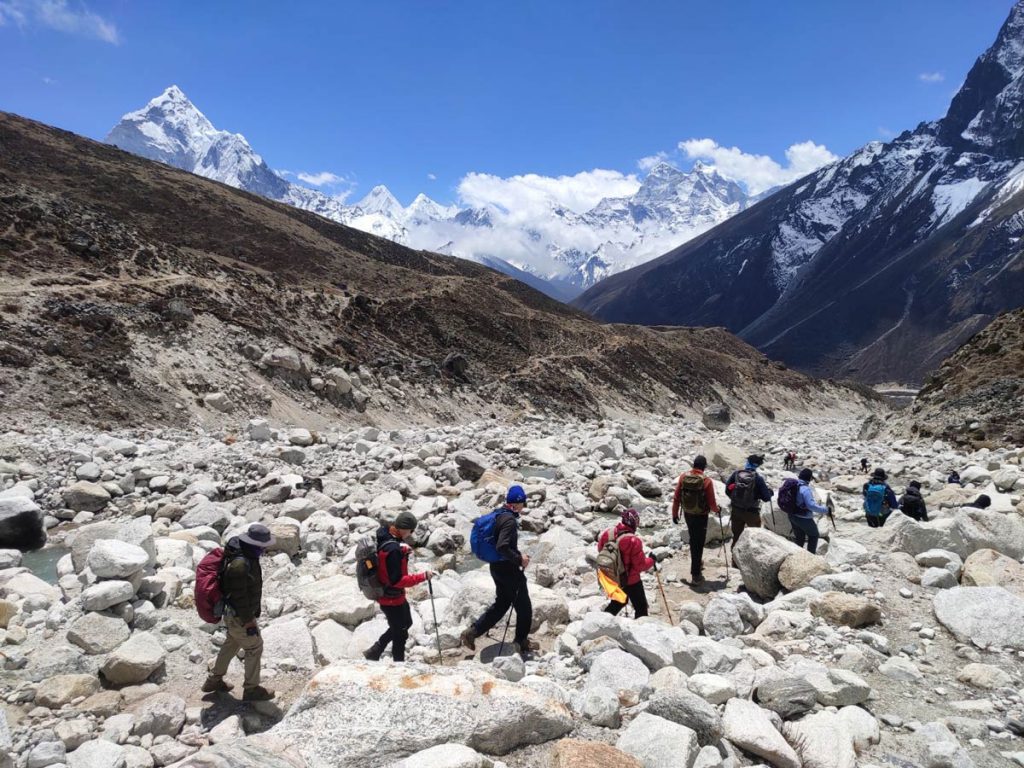
And by reasonably fit, I mean the kind of fit where you can walk for around 4 to 6 hours every day. Even without not being on a workout regime, walking these hours while taking enough breaks should deem you as reasonably fit.
Just to be clear, people having knee and ankle problems and those suffering from heart or lung diseases shouldn’t be ideally trekking the EBC as it might lead to problems during the trek.
Once you have achieved that, the trek shouldn’t be much of a problem as your luggage will be carried by porters and you will always be accompanied by guide and fellow trekkers to help you through your adventure.
Everest Base Camp Trek Fitness Requirements
The Everest Base Camp trek, although challenging, caters to a broad range of trekkers from beginners to professionals. However, for a successful trek in this region, one must meet certain Everest Base Camp Trek fitness requirements.
Cardiovascular Endurance
The foundation of your physical fitness is set by your cardiovascular endurance. Your heart and lungs must be functioning well as you will have to walk for long strenuous walks while on the trek.
The Everest Base Camp distance features several uphill and rough terrains. The thin realm of air with low oxygen levels at higher altitudes further adds to the challenge and your cardiovascular system must be strong enough to tackle that.
If you have any lung or heart-related ailment, it is advisable to not embark on this trek. Even if you do, make sure to take proper precautions and medication.
Muscular Strength and Endurance
While on the Everest Base Camp trek, you will be climbing and descending the trails continuously with a significant amount on your backpack adding to the challenge. That’s where your muscle strength comes into play.
Having strong leg muscles and core strength is an unnegotiable fitness requirement for the Everest Base Camp trek as it helps the trekkers maintain balance and stability throughout the trek.
Along with helping trekkers navigate the uneven terrain of the EBC trek, it also helps them overcome the dreaded horror of sore legs that comes at the end of the day after a long day full of walking as they will be used to the feeling even before the trek.
Flexibility
Although flexibility might not seem as important at a cursory glance, it can at times turn out to be the deciding factor of the comfort of your journey given the Everest Base Camp trek difficulty.
An important part of a holistic training routine, flexibility helps the trekkers prevent sprains, muscle strains, and injuries as they exert pressure on their legs, back, and shoulders throughout the challenging trek.
Mental Toughness
As much of a requirement as physical fitness is, mental resilience is equally important if one must conquer the Everest dream as this journey requires determination and perseverance to overcome the challenges that will be thrown your way.
With long days, basic accommodations, chances of altitude sickness, and lack of your family and familiar comforts, the trek can be quite daunting. Therefore, mental stamina is extremely important.
Training Plan
Fitness is an individual journey, and these preparations aren’t strictly compulsory. However, they can be extremely helpful in making your journey adventurous and enjoyable rather than just dragging your feet till the end of the trek.
You should have a realistic understanding of your fitness level based on your age, pre-existing health conditions, and level of activity.
If you have underlying diseases, consult with your doctor first before embarking on this trek, as high altitudes can exacerbate certain health conditions.
Pregnant women and cancer patients should avoid the EBC trek due to the rigorous physical demands and potential health risks associated with altitude.
The tips listed below are general, and you can alter them slightly to meet your needs.
Your preparations need not be rigorous like that of some ultra-athletic person. Do these things at a moderate pace for two months or even less. And you are set to complete the Everest Base Camp EBC trek enjoyably.
Cardio
Cardiovascular exercises are the best type to include in your fitness regime while preparing for the Everest Base Camp trek as it allows you to maintain your focus and breath while you are walking across the thin air of the Himalayas.
Indulge in cardio exercises like swimming, cycling, jogging, brisk walking, and hiking for at least three to four times a week while gradually increasing the intensity and the duration of your workout as your fitness improves.
Notably, incorporating hiking into your routine will not only enhance your overall cardiovascular endurance but also specifically prepare you for the challenges of treks like the Everest Base Camp.
The varied terrain, altitude changes, and endurance required for hiking closely mimic the demands of high-altitude treks, making it an ideal training activity to ensure you’re adequately prepared for the adventure of a lifetime in the Himalayas.
Strength Training
The importance of leg strength and core strength during the Everest Base Camp trek is insurmountable. To achieve that, you must include strength training exercises with weights included as they prepare you to carry your backpack in trek-specific conditions.
Indulge in exercises that work on your calves, core, and your upper body. Squats, lunges, resistance bands, and weight training three times a week with a gradual increase in challenge go a long way.
Flexibility Exercises
An important aspect of a holistic training plan, flexibility exercises should be a part of your workout routine as they help reduce the soreness of your body both during the training phase and the trek.
Adding 5-10 minutes of dedicated stretching focused on your calves, lower back, hamstrings, glutes, and hips saves you from your dreaded nightmare of having sore muscles at the end of the workout.
Even during your trekking days, regular stretching before and after your trek can help soothe your tired muscles as it improves muscle elasticity.
Stair Climbing
Although a rather simple practice, including stair climbing in your training plan can be very effective as it stimulates the uphill sections of the trek, and getting down the stairs stimulates the downhill sections.
It allows you to take a practice walk in conditions like that of the trek and allows you to get accustomed to the challenging trek conditions. Stair climbing strengthens your leg muscles and helps to boost your cardiovascular stamina as well.
Mental Practice
While resilience is something that comes from within, it can be built over time with continuous practice. You can build a positive mental attitude and determination by practicing mindfulness.
Indulging in yoga and meditation also helps you to become mentally strong and allows you to build optimism and picture scenarios like conquering the trek when you feel skeptical about the journey.
Understanding Altitude Sickness
As you reach the skies at an altitude of 5,555 m above sea level, altitude becomes a big challenge during the Everest Base Camp trek. So much so that if you are not careful, you might experience symptoms like headache, nausea, dizziness, and breathing problems.
Keep in mind that acute mountain sickness doesn’t care about how fit you are, and it can hit anyone at random. Therefore, you must be aware of the unique challenge of altitude.
You can avoid altitude sickness by sticking to some of the tried and tested preventive measures. The key to preventing altitude sickness is to ascend slowly and include acclimatization days in your itinerary.
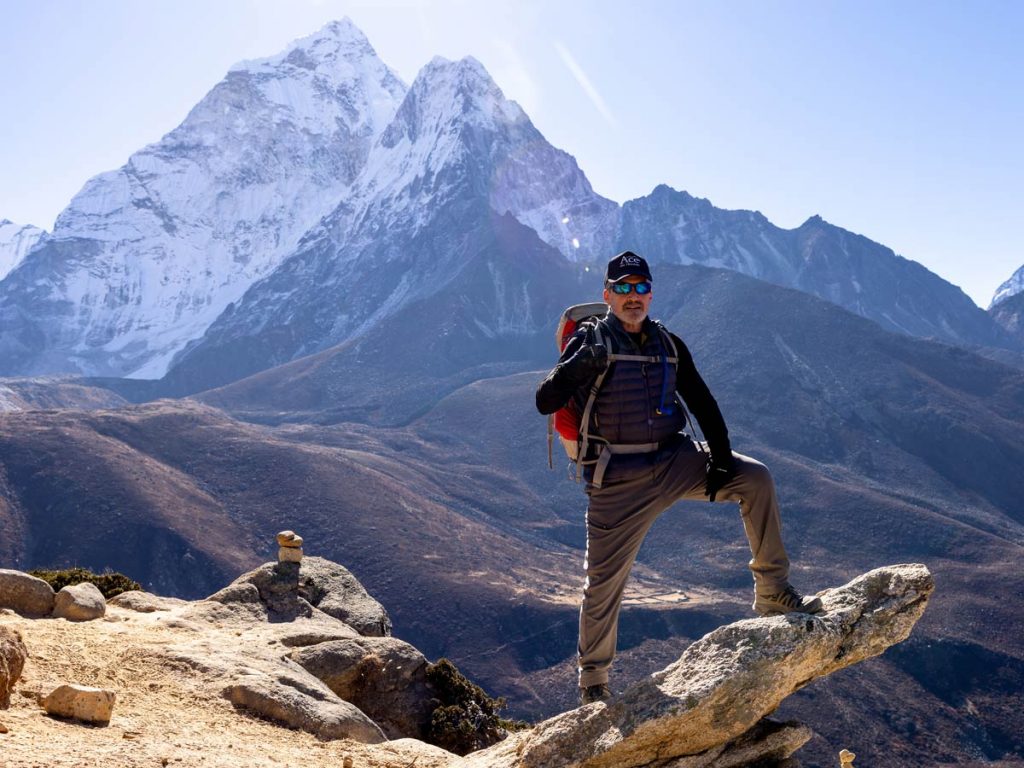
Adding a couple of days to your itinerary is much better than leaving the trek midway. It is best to avoid your intrusive thoughts asking you to ascend more as it can cause more harm than ease in your journey. Stay hydrated and be aware of your body’s signals.
One of the preventive measures could also be indulging in altitude training during the training period. Embark on short hikes in high-altitude areas so that your body gets accustomed to the thin air.
Young Feats
Debunking all the myths surrounding the EBC trek, a 2-year-old Scottish boy named Carter Dallas reached the Everest Base Camp in October 2023. The toddler completed the journey on the back of his father and became the youngest to achieve this feat.
Before this, a four-year-old girl named Zara from the Czech Republic held the record of being the youngest to conquer the EBC trek. In 2012, a twelve-year boy Zac trekked to EBC along with his mom Theodora who writes at EscapeArtistes.
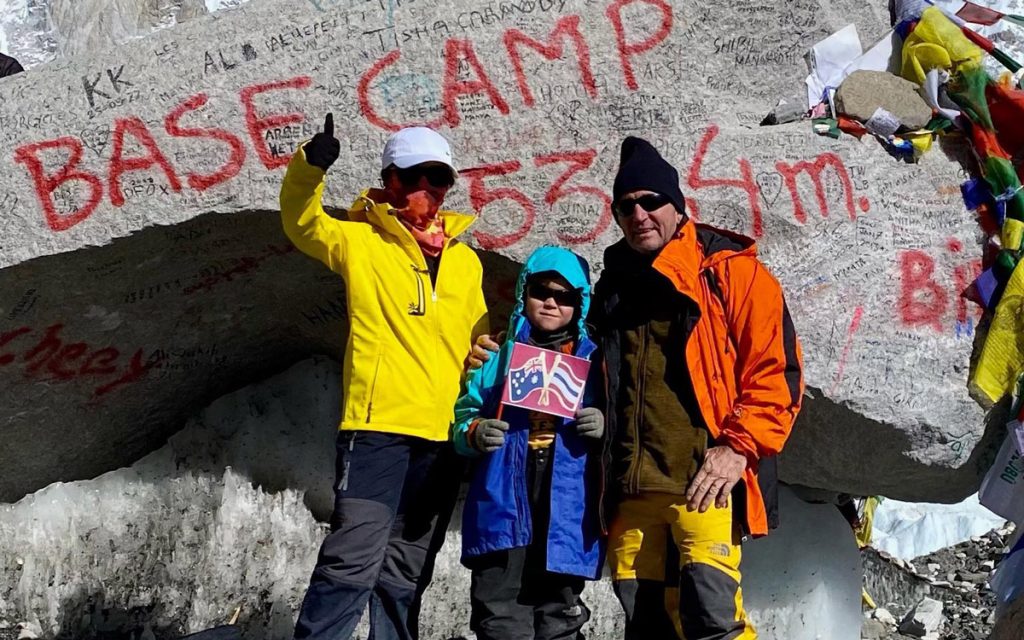
In the same year, an Indian boy Aaryan Balaji also completed the same EBC trek. In addition, he also scaled Mount Kala Patthar the next day. He was just seven years old.
Even in our organization’s experience, a 7-year-old boy Gus Man conquered the challenging trails of EBC therefore making Gus Man the youngest trekker of Ace the Himalaya.
Unlike the popular notion, rather a myth, that only elite athletes can conquer the Everest Base Camp trek, these young adventurers along with several others who aren’t typical muscled athletes have successfully trekked EBC safely and with great enjoyment.
If these young trekking enthusiasts can do it, why can’t you?
Additional Tips
While the things mentioned above might just suffice for your trek to be successful, the tips given below will further enhance your trekking experience during the Everest Base Camp trek.
- Start your training routine well in advance allowing your body enough time to prepare for the trek. As you prepare to come to Nepal, keep your physical activity minimal and allow your body to taper off.
- Add stretching into your trekking schedule compulsorily as it allows you to warm up as well as loosen up your muscles to help reduce the soreness.
- Listen to your body. Take breaks if you must and even include additional days for acclimatization if your body is giving you any signals of unease.
- Practice good sleep hygiene during the trek as it keeps you energetic while also helping with acclimatization.
- Do not underestimate the wonders a balanced diet can do. Make sure to eat proper local food rich in nutrients to maintain overall health. Drink lots of water and electrolyte-rich beverages.
- Get a full body checkup before embarking on the trek as it allows you to take any precautionary measure if required.
- Make sure your gear is ready to use without causing any harm. Break in your trekking shoes well before embarking on the trek so as to prevent any blisters or soreness in the feet.
